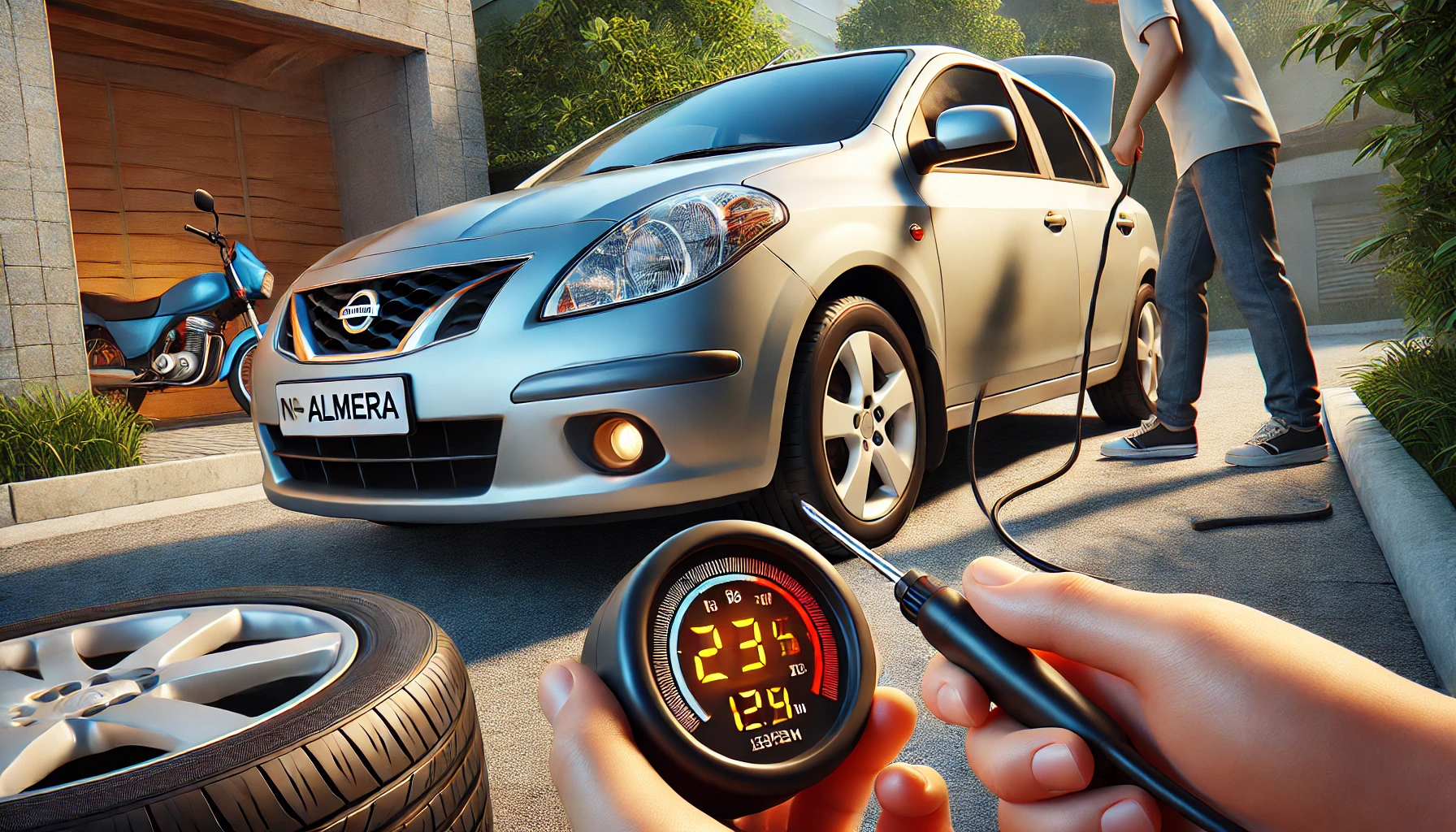
Your Nissan Almera may show a tire pressure warning light for a variety of reasons, but these are the most typical causes:
1. Low Tire Pressure
The most frequent trigger for the sensor is simply low tire pressure. Make sure to check each tire’s air pressure and ensure they are inflated to the recommended PSI.
2. Aging or Faulty TPMS Sensors
Just like the Micra, the Almera’s tire pressure monitoring system (TPMS) sensors have a limited lifespan. Usually, the sensors last between 5 and 7 years before they may need to be replaced due to battery depletion or wear.
3. Temperature Fluctuations
Significant drops in temperature can cause a reduction in tire pressure, setting off the TPMS warning. In winter, this is a common occurrence.
4. Tire Rotation or Replacement
If you’ve recently changed or rotated your tires, the TPMS system might need to be reset. The sensors could be reading incorrectly until the system is recalibrated.
5. Communication Issues
Sometimes, the issue is not with the sensors but with the car’s onboard computer system failing to communicate with the TPMS sensors. This could require a diagnostic check to pinpoint the fault.
Steps to Fix the Tire Pressure Sensor Fault in Your Nissan Almera
1. Check the Tire Pressure
Use a tire pressure gauge to manually check the pressure of all tires. If any are low, inflate them to the manufacturer’s recommended PSI (typically around 32 PSI for the Nissan Almera). After doing this, drive the car for a few minutes, and the light may turn off automatically.
2. Reset the TPMS System
You can manually reset the TPMS in most Nissan Almera models. Here’s how:
- Turn the ignition to “ON” without starting the engine.
- Press and hold the TPMS reset button, usually located under the dashboard, until the warning light blinks three times.
- Start the engine and drive for about 10 minutes at 25-30 mph to allow the system to recalibrate.
3. Replace the Faulty Sensor
If the reset doesn’t fix the issue, one or more sensors could be defective and may need to be replaced. A professional TPMS diagnostic tool can help determine which sensor is malfunctioning.
4. Consult a Mechanic
If the problem persists, it’s best to take the car to a mechanic or a Nissan dealership. They can run a diagnostic scan and ensure there are no deeper issues with the TPMS system.
Preventing Future TPMS Faults
- Check tire pressure regularly, especially before long trips or seasonal changes.
- Make sure to rotate tires and inspect TPMS sensors during routine services.
- If your TPMS sensors are older than 5 years, consider replacing them preemptively to avoid sudden issues.
